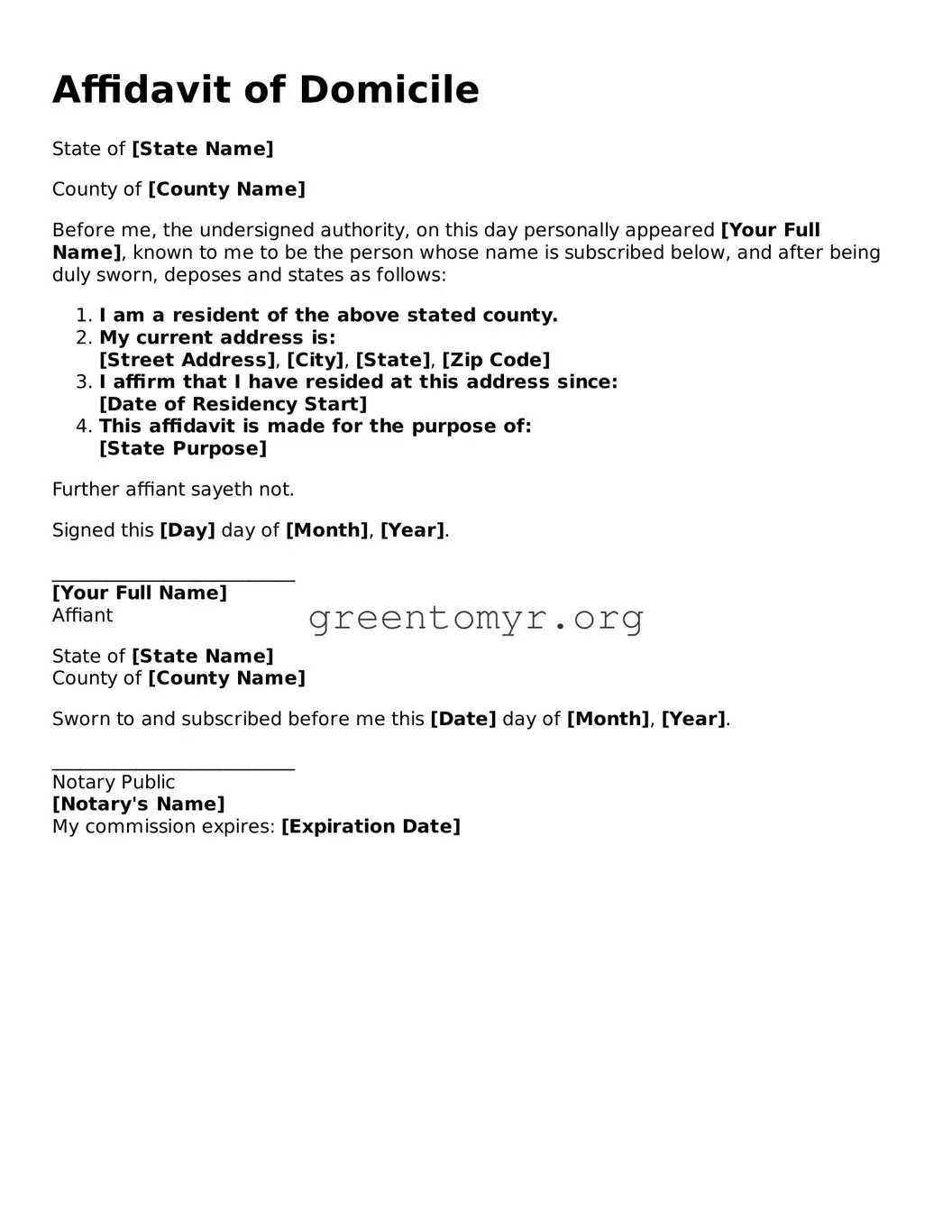Affidavit of Domicile
State of [State Name]
County of [County Name]
Before me, the undersigned authority, on this day personally appeared [Your Full Name], known to me to be the person whose name is subscribed below, and after being duly sworn, deposes and states as follows:
- I am a resident of the above stated county.
- My current address is:
[Street Address], [City], [State], [Zip Code]
- I affirm that I have resided at this address since:
[Date of Residency Start]
- This affidavit is made for the purpose of:
[State Purpose]
Further affiant sayeth not.
Signed this [Day] day of [Month], [Year].
__________________________
[Your Full Name]
Affiant
State of [State Name]
County of [County Name]
Sworn to and subscribed before me this [Date] day of [Month], [Year].
__________________________
Notary Public
[Notary's Name]
My commission expires: [Expiration Date]
